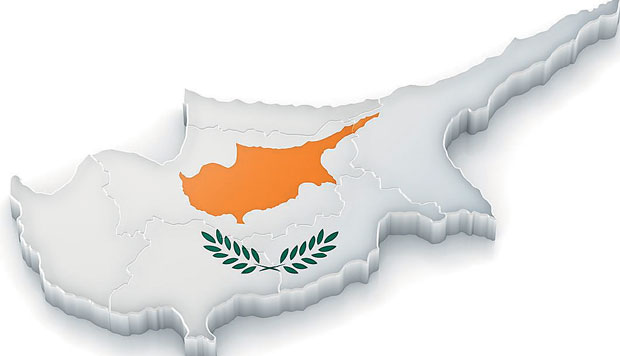18 Jan 2017 - {{hitsCtrl.values.hits}}

By Leonid Bershidsky
(c) 2017, Bloomberg View ·
What has been billed as the last chance for Greek and Turkish Cypriots to reunite the island nation appears to be tantalizingly within reach -- but it might not get there without a nod from Russia.
Cyprus has been divided since 1974, when Turkey invaded to prevent the island from being swallowed up by Greece and set up an unrecognized state in Northern Cyprus. Now, Greece, Turkey and the U.K., which has bases in Cyprus, are the guarantor states of a military status quo. Along with the leaders of the two Cypriot states, United Nations Secretary General Antonio Guterres and European Commission President Jean-Claude Juncker took part in the talks in Geneva this week. After breaking down on Thursday, the talks are scheduled to pick up next week at a lower level.
Russia offered to attend but it wasn’t invited; there’s no formal reason for that. Yet there are plenty of informal ones for Moscow’s interest in the Cyprus process. Though Russia has officially voiced support for a settlement, the final deal -- depending on which way it sways -- could hurt its many interests in the region.
About 40,000 Russians live on the island, which has a population of 800,000. They own real estate and businesses in both the Greek-run and Turkish-run areas. Thanks to its history as an offshore haven for post-Soviet money, tiny Cyprus is officially the biggest source of foreign direct investment in Russia. According to the Russian central bank, in the second quarter of 2016 (the latest for which data are available), it accounted for $2.8 billion in investment, more than twice as much as the next country. They are also a major source of tourist revenue for Cyprus. According to the Cyprus government, 525,000 Russians visited the island in 2015; only Britain provides more tourists.
In short, Cyprus is an important place for Russia and Russians. But reunification would only benefit Moscow under certain conditions.
Russia seeks to weaken and divide the North Atlantic Treaty Organization, but a settlement could strengthen it by resolving a longstanding conflict between Greece and Turkey -- members both . It could also mean an end to Russia’s military foothold in the region, gained in 2015 when Cyprus opened its ports to Russian warships taking part in anti-piracy and anti-terrorist operations. The U.K. has criticized the move. Russia hasn’t used the official agreement to help its military action in Syria, but it appears to have used Cyprus ports to smuggle jet fuel to Syria despite an EU ban.
President Vladimir Putin is also seeking to forge an energy partnership with Turkey’s President Recep Tayyip Erdogan to sell gas to southern Europe, but reunification threatens to clear the way for a competing one. Big natural gas discoveries in the eastern Mediterranean and a warming of relations between Israel and Turkey made the construction of a pipeline carrying Israeli gas to Turkey a possibility -- though the Greek government of Cyprus has linked the pipeline to reunification.
All of these interests have naturally created suspicions about Russia’s role in the unification process.
The local press has reported that the Russian ambassador, Stanislav Osadchiy, recently attended an anti-unification political gathering and was applauded by its participants. After that, the Cypriot foreign ministry reportedly demanded an explanation.
A Politico report suggested that Russia may meddle quietly to undermine the deal. It certainly has enough influence on the island and enough contacts with Cypriot officials and politicians to do that. More likely, however, Russia is merely signaling -- as it has often done in recent years -- that it will need to be consulted for a successful result to be achieved.
The success of the Geneva talks, which the UN envoy on Cyprus has called “the moment of truth,” hinges on the resolution of tangled property issues -- but at this point, that’s not what’s holding up the deal. Greek Cypriots are against any special security guarantees for the reunited island, which will be an EU member. Turkey, however, insists on its guarantor status. On Friday, Erdogan said Turkish troops would remain on the island “forever.”
A complete breakdown of the talks would be fine with Putin. It would preserve and perhaps deepen the Greek-Turkish rift within NATO, stave off gas pipeline projects in the eastern Mediterranean, allow Russia to keep Cyprus as the EU playground for its business and a neutral but friendly port of call for its ships.
If reunification does finally take place, Russia will need to know how its interests will be protected. What it clearly doesn’t want is for NATO to be strengthened and for Cyprus to join it -- a possibility after unification. If Moscow is not satisfied, it could undermine the deal both inside Cyprus and in the UN.
17 Nov 2024 47 minute ago
17 Nov 2024 3 hours ago
17 Nov 2024 3 hours ago
17 Nov 2024 4 hours ago
17 Nov 2024 5 hours ago